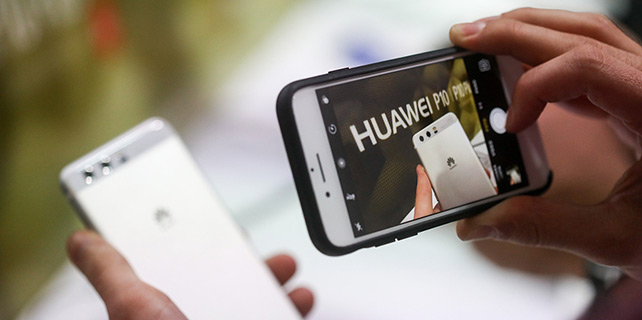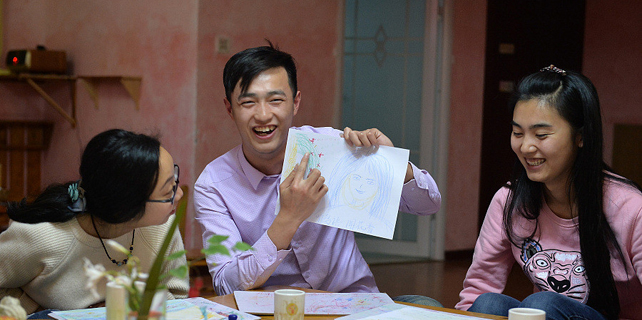State's GDP relies on Chinese imports more than any other in US
US President Donald Trump won the state of Tennessee with 61.1 percent of the vote in the 2016 presidential election.
It was the largest margin of victory for a presidential candidate from either party since 1972, and the first time since that year that either party had gotten more than 60 percent of the state's vote.
Politically bright-red Tennessee, coincidentally, is the US state most dependent on trade with China.
"Any new import fees or trade restrictions would definitely put a crimp in those industries relying upon Chinese parts for their products," Steve Livingston, a professor of political science at Middle Tennessee State University, told the Times Free Press of Chattanooga.
For now, it doesn't look like Tennessee has anything to worry about, and Trump and the US Treasury Department have decided not to label China a currency manipulator.
Trump also spoke glowingly of his rapport with President Xi Jinping at their Mar-a-Lago summit earlier this month, an outcome welcomed by businesses on both sides of the Pacific, considering the rough rhetoric that flowed out of the US campaign.
The Volunteer State imported $23.7 billion of products from China last year. China provided the largest percentage of Tennessee's imports (31.4 percent) in 2016, followed by Japan and Mexico.
The two-way trade represents 9.3 percent of the state's gross domestic product, the highest percentage of any state in the country, according to the US Census Bureau. (Tennessee exported $2.2 billion worth of products to China last year.)

According to the Business Roundtable, international trade supports almost 830,000 jobs in Tennessee - more than 1 in 5.
The Rhodium Group of New York, which tracks Chinese foreign direct investment in the US, reported that as of the fourth quarter of 2016, China and Tennessee have put together 19 deals worth $496 million. The top two industries for the deals are health and biotech ($291 million) and automotive ($72 million).
China is a major supplier of electronic components to Tennessee, which are used to make cellphones, printers and computers in the state.
Tennessee's top exports are medical equipment and supplies, motor vehicle parts and vehicles, and computer equipment.
In May 2016, Governor Bill Haslam and Tennessee Economic and Community Development (TECD) Commissioner Randy Boyd attended meetings in Shanghai, meeting with the city's mayor as part of an economic development trip to increase FDI in Tennessee.
"Tennessee and Shanghai share mutual strengths in advanced manufacturing, health care, aerospace and agriculture," Haslam said. "We are building and enhancing the partnership between our governments to help Tennessee successfully grow in each of these sectors. I look forward to promoting job creation and economic development through this collaboration."
The University of Tennessee Health Science Center plans to build strategic cooperative relations with biomedicine companies in Chengdu, Sichuan province, and establish a mechanism to ensure steady technology and personnel exchanges in 3-D bio-printing.
The latest 3-D bio-printing technology is bringing about a medical revolution that will change human life, said Steven Goodman, vice-chancellor of the University of Tennessee's Memphis campus.
Goodman visited the Chengdu High-Tech Industrial Development Zone from Feb 22 to 26 with six other professors from the university.
Biotech company Revotek announced in December a breakthrough in the clinical application of 3-D bio-printing technologies. The company was the first to successfully implant custom-made, 3-D bio-printed blood vessels into animals.
"Revotek's 3-D bio-printing technologies have great significance for future clinical applications. We hope to establish a friendly and cooperative relationship with them," Goodman said.
Revotek, the University of Tennessee and the West China Hospital of Sichuan University also agreed to set up a cardiovascular hospital in Chengdu, and the university will establish a campus in the city.
Automotive supplier Yanfeng has opened a $55 million plant to assemble auto interiors imported from China for Volkswagen Passats and Atlas vehicles assembled in Chattanooga. The plant is expected to create 325 local jobs.
In March, Guangdong Wonderful Ceramics Co became the first Chinese company in its sector to invest abroad, with a $172 million project under way in Lebanon, Tennessee.
Contact the writer at williamhennelly@chinadailyusa.com
(China Daily USA 04/20/2017 page2)








